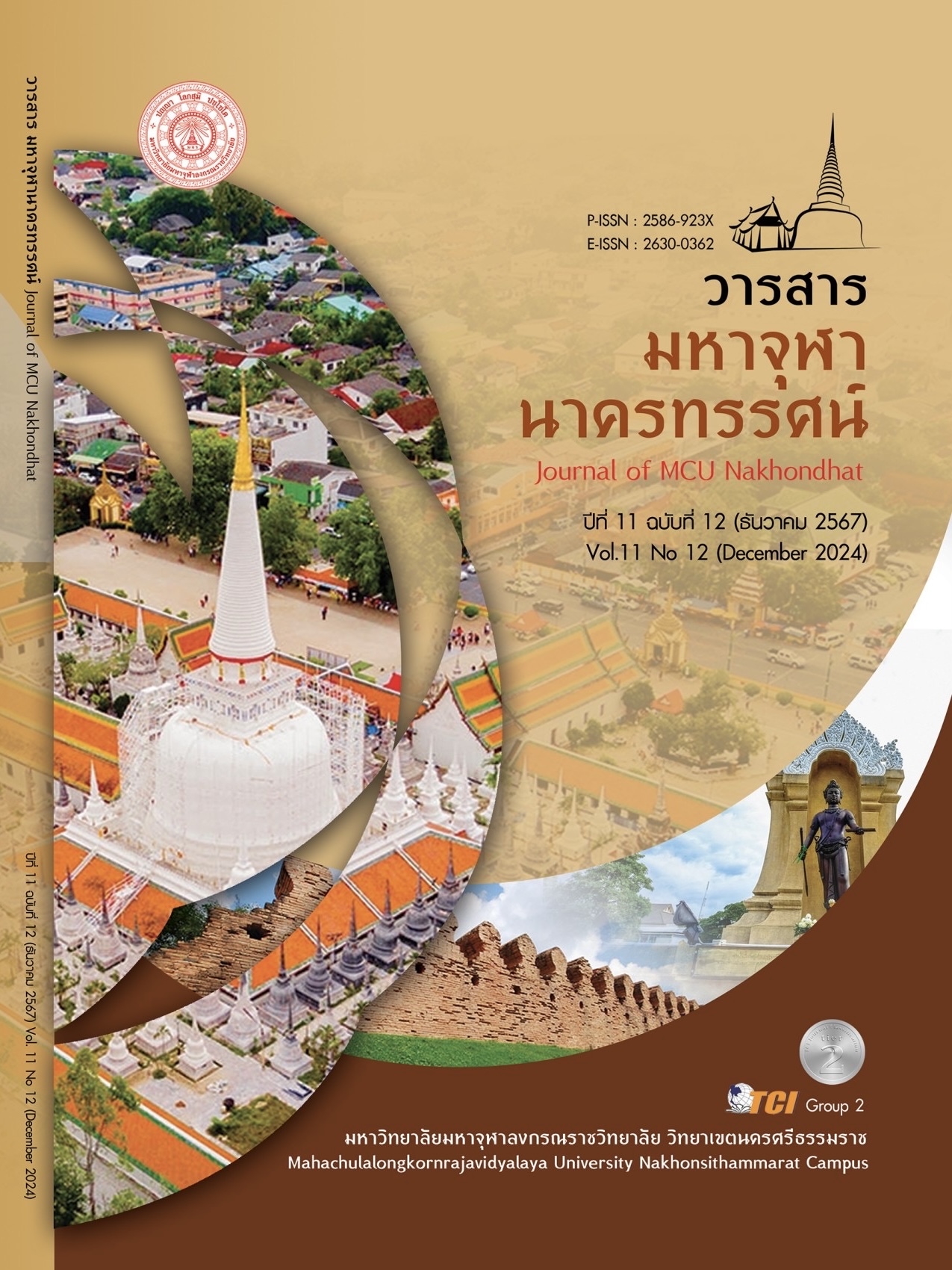A STUDY OF COMPETANCY COMPONENTS IN THE LEARNING MANAGEMENT OF EARLY CHILDHOOD TEACHERS
Main Article Content
Abstract
This research aims to study the components of early childhood teachers' learning management competencies. The study uses a quantitative approach and comprises two main steps: 1) Synthesizing the components of learning management competencies for early childhood teachers through a review of relevant documents and research from 10 sources, and 2) Evaluating the appropriateness of these components with input from five experts, including university lecturers, school administrators, and early childhood teachers. The research instruments include a document synthesis form and a 5-point Likert scale questionnaire, both validated by two thesis advisors. Data analysis was conducted using content analysis, with statistical methods including frequency, percentage, mean, and standard deviation. The findings indicate that the learning management competencies for early childhood teachers consist of 7 components and 39 indicators: 1) Curriculum development (6 indicators), 2) Knowledge and ability in learning design (6 indicators), 3) Use of media, innovation, and technology in learning management (5 indicators), 4) Organization of learning experiences (6 indicators), 5) Classroom management (6 indicators),
6) Student development (7 indicators), and 7) Assessment and evaluation (3 indicators). The evaluation by the experts shows that all components are highly appropriate, both overall and individually. The ranking of the components by their mean values is as follows: 1) Curriculum development, 2) Knowledge and ability in learning design, 3) Use of media, innovation, and technology in learning management, 4) Organization of learning experiences, 5) Classroom management, 6) Student development, and 7) Assessment and evaluation. All components were found to be highly appropriate.
Article Details

This work is licensed under a Creative Commons Attribution-NonCommercial-NoDerivatives 4.0 International License.
References
กุลประภา วรพิทักษง. (2561). การพัฒนาครูปฐมวัยในการจัดการเรียนรู้แบบบูรณาการ. วารสารการศึกษาปฐมวัย, 6(2), 15-24.
จีรนะ ดวงภูเมห. (2566). แนวทางการจัดประสบการณ์การเรียนรู้แบบไฮสโคปในการพัฒนาทักษะเด็กปฐมวัย. วารสารการศึกษาไทย, 24(3), 121-134.
บุญชม ศรีสะอาด. (2556). วิธีการทางสถิติสำหรับการวิจัย เล่ม 1. กรุงเทพมหานคร: สุวีริยาสาส์น.
ประเสริฐ สินธุวงษ์. (2562). การออกแบบการจัดการเรียนรู้สำหรับเด็กปฐมวัย. วารสารการศึกษาปฐมวัย, 12(2), 98-113.
ปราณี ช่วยชู. (2565). ผลกระทบของสมรรถนะครูปฐมวัยต่อการพัฒนาทักษะทางสังคมของเด็ก. วารสารการพัฒนาเด็กปฐมวัย, 12(4), 52-63.
พัชราภรณ์ มณีกร และจิตรา สันติภาพ. (2564). การส่งเสริมการเรียนรู้สำหรับเด็กปฐมวัยผ่านสื่อการสอนที่มีคุณภาพ. วารสารการศึกษาปฐมวัย, 20(3), 45-60.
สำนักงานเลขาธิการสภาการศึกษา. (2562). รายงานการศึกษาสภาวการณ์การจัดการศึกษาสำหรับเด็กปฐมวัยในประเทศไทย. เรียกใช้เมื่อ 15 พฤศจิกายน 2567 จาก https://www.onec.go.th/
สำนักงานเลขาธิการสภาการศึกษา. (2564). แผนพัฒนาเด็กปฐมวัย พ.ศ. 2564 - 2570. เรียกใช้เมื่อ 15 พฤศจิกายน 2567 จาก https://ecd.onec.go.th/
สุมาลี สอนสมร. (2566). การพัฒนาสมรรถนะครูปฐมวัยในการจัดการเรียนรู้. วารสารการศึกษาระดับปฐมวัย, 15(2), 34-45.
Painta, R. C. (2552). Classroom assessment scoring system manual. Pre-K. Paul H: Brookes Publishing Company.


